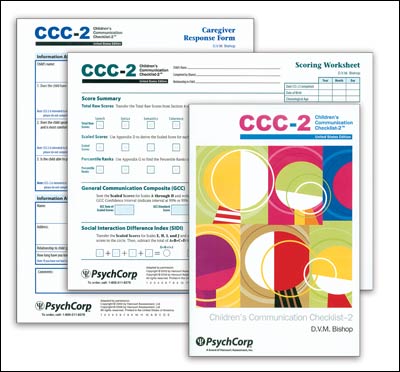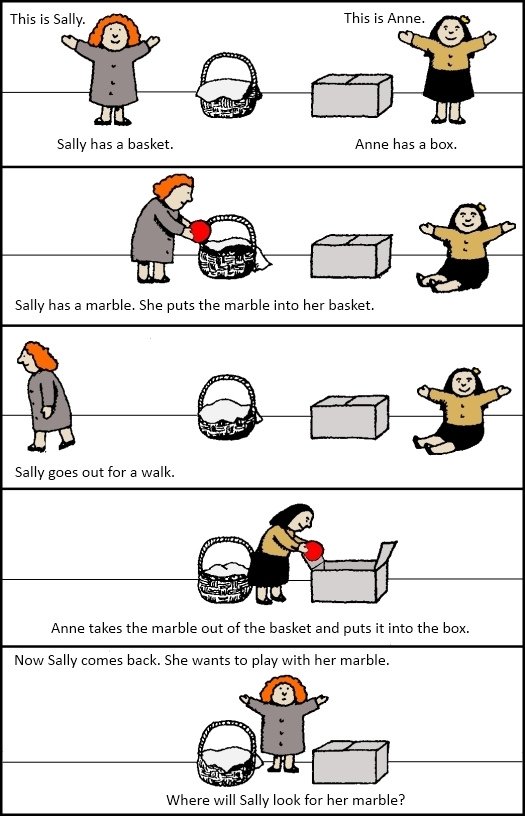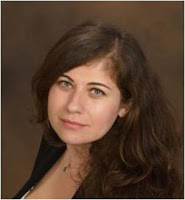I have been spending a lot of time trying to find the ‘right’ pragmatic assessments for my school, so when I had the opportunity to have Tatyana from Smart Speech Therapy guest post, I was super excited! Read on for more about assessing social pragmatic skills….

Importance of Assessing Social Pragmatic Abilities in Children with Language Difficulties.You’ve received a referral to assess the language abilities of a school aged child with suspected language difficulties. The child has not been assessed before so you know you’ll need a comprehensive language test to look at the child’s ability to recall sentences, follow directions, name words, as well as perform a number of other tasks showcasing the child’s abilities in the areas of content and form (Bloom & Lahey, 1978). But how about the area of language use? Will you be assessing the child’s pragmatic and social cognitive abilities as well during your language assessment? After all most comprehensive standardized assessments, “typically focus on semantics, syntax, morphology, and phonology, as these are the performance areas in which specific skill development can be most objectively measured” (Hill & Coufal, 2005, p 35). This means that popular comprehensive language tests such as the Clinical Evaluation of Language Fundamentals-4 (CELF-4) or the Test of Language Development-4 will not contain subtests assessing pragmatics and social competence. Furthermore, many children can attain average scores on these tests yet still present with pervasive social language deficits. That is why it’s very important to thoroughly assess this area separately and not merely document your observations regarding the child’s behavior in the ‘background information’ section of the report. But why should we? Can this one area really make such a difference? Well, turns out that it can! Numerous researchers have found a strong connection between language impairment (LI) and social deficits. Paul, Looney, & Dahm (1991) found that late talkers as young as 18 months of age evidence peer socialization difficulties. Early social difficulty such as difficulty with initiating and participating in play with peers may place toddlers at risk for later social rejection. As these children enter preschool they run the risk of being less socially accepted (Gertner, Rice, & Hadley, 1994) then typically developing peers. By the time children with language difficulties enter early elementary grades, the gap widens as they begin to manifest greater and greater difficulties in the area of social functioning (Fujiki, Brinton, Isaacson, & Summers, 2001). So how can we administer balanced comprehensive evaluations which encompass assessment of the child’s social pragmatic skills? For starters, we need to do some prep work and establish prior to testing that this area is indeed affected and requires looking into. I personally dislike wasting time, which is why prior to my assessments, I ask both the parent and the teacher to fill out checklists, which I’ve developed, specifically for this purpose. On these multiple page checklists (separate for preschool and school aged children), I have 5 areas related to social pragmatic functioning:
- Narrative/Storytelling
- Problem Solving
- Pragmatic Language
- Social Emotional Development
- Executive Functions
After a specific checklist is returned to me, I make decisions regarding whether part of my testing will be devoted to assessment of the child’s social pragmatic language skills and if so, what type of testing will be appropriate in such case? If social pragmatic assessment is needed, the latter becomes fairly apparent after I observe the child (e.g., in the classroom, during free period) as well as during the administration of the comprehensive language testing. So what are some useful standardized and non standardized assessments of Social Pragmatic Language? There are quite a few, but for the purposes of this post, I’ll just mention some of the ones that I use on daily basis for children whose ages range from preschool through adolescence. For preschoolers ages 4 and up, the Children’s Communication Checklist-2 U.S. Edition (CCC-2) is quite useful. This 70 item norm referenced instrument (given to the parent to rate) is divided into 10 scales, 4 of which (E, F, G & H) address pragmatic aspects of communication, while another two (I & J) assess behaviors commonly impaired in children with Autism Spectrum Disorders (Bishop, 2006; 2000).  For school aged children 6-12 years of age, the following standardized instruments tend to be fairly effective in teasing out social pragmatic language deficits:
For school aged children 6-12 years of age, the following standardized instruments tend to be fairly effective in teasing out social pragmatic language deficits:
- Test of Problem Solving-3 Elementary (TOPS-3)
- Test of Pragmatic Language-2 (TOPL-2) Available for children 6-18 years of age*
- Social Emotional Evaluation (SEE)**
- Social Language Development Test -Elementary (SLDT-E)
*It is important to note that the TOPL-2 is best suited for children who either have impaired cognitive abilities (<70 IQ) or who have severely impaired perspective taking abilities, since this test is primarily composed of questions dealing with rules of polite conduct and involves very limited perspective taking. Children with average IQ but significant word-retrieval deficits may also fair poorly on this test, if they are unable to coherently verbalize their answers to presented questions. **Similarly the Social Emotional Evaluation (SEE) is best suited for children with impaired cognition and moderately impaired perspective taking abilities, since much of the test involves recall of facial expressions, as well as identification and recognition of common emotions and emotional reactions. The subtest “Understanding Conflicting Messages” may be limitedly useful for administration with higher functioning children. For school aged children 12-18 years of age I typically use the following standardized instruments (unless they are significantly impaired in the area of pragmatics, in which case I’ll use the TOPL-2):
- Test of Problem Solving-2 Adolescent (TOPS-2)
- Social Language Development Test -Adolescent (SLDT-A)
- Listening Comprehension Test Adolescent (LCT-A)
Some of you may wonder why I included the test of Listening Comprehension on this list. Well for those of you who are unfamiliar with this test, it has paragraph based questions, which require synthesis of presented information to identify main ideas. In other words the test assesses the student’s ability to engage in Gestalt Processing, or recognizing the “big picture” in messages, stories, or announcements. I also use it because it assesses problem solving and inferencing abilities, empathy and decision making in older children, so it’s a very useful instrument to have in your tool kit if you are working with language impaired adolescents. When it comes to informal assessment of social language competence I often use materials from the following sources with children of various ages:
- Sally-Anne: First Order False Belief Task (Baron-Cohen, Leslie, & Frith 1985) Ages 4-5
- John Thinks that Mary Thinks Task (Perner & Wimmer, 1985) Ages 6+
- John Thinks that Mary Feels Task (Parker, MacDonald, & Miller, 2007) Ages 5-8
- Strange Stories (Happe, 1994) Ages 6+
- Social Dynamic Assessment Protocol (Winner, 2007) Ages 8+
- Informal Narrative Assessments (Hedberg & Westby, 1993) Ages: Pre-K -Adolescent
 These are aimed at assessing the client’s perspective taking abilities, Theory of Mind, comprehension of non-literal language, positive and negative emotions, ability to produce coherent and cohesive narratives, as well as other abilities related to social competence. Of course I always exercise caution when using the above materials and instruments when assessing social pragmatic abilities of bilingual and multicultural children, since oftentimes extreme caution will be needed when reporting data and interpreting performance outcomes in order to avoid bias. Also, when evaluating social pragmatic abilities, I typically attempt to use multiple assessment tasks to create a balanced assessment. I try to ensure that my assessments are functional, meaning that during my assessment I determine the child’s strengths and not just weaknesses. That is because I am looking for diagnostic information needed to formulate treatment goals, and if I just uncover weaknesses across the board, it’s quite difficult to find the starting point to initiate therapy. I also make sure that I add a descriptive portion to the report in addition to documenting standard scores, in order to objectively describe the child’s deficit areas. Social pragmatic assessments are an integral part of language evaluations. After all so much of our students’ success depends not on their standardized tests scores but on their social skills (Lleras, 2008). Resources: Assessing Social Pragmatic Skills of School Aged Children Treatment of Social Pragmatic Deficits in School Aged Children Speech Language Assessment Checklist For A School-Aged Child Speech Language Assessment Checklist For A Preschool Child At a Glance Narrative Assessment Charts Narrative Assessments of Preschool and School Aged Children References:
These are aimed at assessing the client’s perspective taking abilities, Theory of Mind, comprehension of non-literal language, positive and negative emotions, ability to produce coherent and cohesive narratives, as well as other abilities related to social competence. Of course I always exercise caution when using the above materials and instruments when assessing social pragmatic abilities of bilingual and multicultural children, since oftentimes extreme caution will be needed when reporting data and interpreting performance outcomes in order to avoid bias. Also, when evaluating social pragmatic abilities, I typically attempt to use multiple assessment tasks to create a balanced assessment. I try to ensure that my assessments are functional, meaning that during my assessment I determine the child’s strengths and not just weaknesses. That is because I am looking for diagnostic information needed to formulate treatment goals, and if I just uncover weaknesses across the board, it’s quite difficult to find the starting point to initiate therapy. I also make sure that I add a descriptive portion to the report in addition to documenting standard scores, in order to objectively describe the child’s deficit areas. Social pragmatic assessments are an integral part of language evaluations. After all so much of our students’ success depends not on their standardized tests scores but on their social skills (Lleras, 2008). Resources: Assessing Social Pragmatic Skills of School Aged Children Treatment of Social Pragmatic Deficits in School Aged Children Speech Language Assessment Checklist For A School-Aged Child Speech Language Assessment Checklist For A Preschool Child At a Glance Narrative Assessment Charts Narrative Assessments of Preschool and School Aged Children References:
- Baron-Cohen, S., Leslie, A.M., & Frith, U. (1985) Does the autistic child have a ‘theory of mind’? Cognition, 21, 37-46
- Bishop, D. V. M. (2006), CCC-2; Children’s Communication Checklist-2, United States Edition, Manual. San Antonio, TX: Pearson
- Bishop, D. V. M. (2000). Pragmatic language impairment: A correlate of SLI, a distinct subgroup, or part of the autistic continuum? In D. V. M. Bishop & L. B. Leonard (Eds.), Speech and language impairments in children: Causes, characteristics, intervention & outcome (pp.99-113). Hove, UK: Psychology Press
- Bloom, L & Lahey, M. (1978) Language development and language disorders. New York, Wiley.
- Fujiki, M., Brinton, B., Isaacson, T., & Summers, C. (2001). Social behaviors of children with language impairment on the playground: a pilot study. Language, Speech, and Hearing Services in Schools, 32 (2), 101-113.
- Gertner, B.L., Rice, M.L., & Hadley, P.A. (1994). Influence of communicative competence on peer preferences in a preschool classroom. Journal of Speech and Hearing Research, 37, 913-923.
- Happé, F. G. E. (1994). An Advanced Test of Theory of Mind: Understanding of Story Characters’ Thoughts and Feelings by Able Autistic, Mentally Handicapped and Normal Children and Adults. Journal of Autism and Developmental Disorders, 24, 129-154.
- Hedberg, N. & Westby, C. (1993). Analyzing story-telling skills: Theory to practice. Tucson, AZ: Communication Skill Builders.
- Hill, J. W., & Coufal, K. L. (2005). Emotional/behavioral disorders: A retrospective examination of social skills, linguistics, and student outcomes. Communication Disorders Quarterly, 27(1), 33–46.
- Lleras, Christy. (2008). “Do Skills and Behaviors in High School Matter? The Contribution of Noncognitive Factors in Explaining Differences in Educational Attainment and Earnings.” Social Science Research, 37: 888-902.
- Parker JR, MacDonald CA, & Miller SA, (2007) “John thinks that Mary feels. . .” False belief in children across affective and physical domains. Journal of Genetic Psychology, 168(1):43-61.
- Paul, R., Looney, S., & Dahm, P. (1991). Communication and socialization skills at ages 2 and 3 in “late-talking” young children. Journal of Speech and Hearing Research, 34, 858-865.
- Perner, J., & Wimmer, H. (1985) John Thinks That Mary Thinks That – Attribution of 2nd order Beliefs By 5-Year-Old To 10-Year-Old Children. Journal of Experimental Child Psychology, 39, 437–471.
- Winner, M.G., (2007). Thinking About You Thinking About Me. Think Social Publications, San Jose, CA
 Bio: Tatyana Elleseff MA CCC-SLP is a bilingual SLP with a full time hospital affiliation as well as private practice in Central, NJ. She specializes in working with multicultural, internationally and domestically adopted as well as at-risk children with complex communication disorders. For more information visit her BLOG, STORE, or follow her Facebook page.
Bio: Tatyana Elleseff MA CCC-SLP is a bilingual SLP with a full time hospital affiliation as well as private practice in Central, NJ. She specializes in working with multicultural, internationally and domestically adopted as well as at-risk children with complex communication disorders. For more information visit her BLOG, STORE, or follow her Facebook page.




![Using open ended activities and games in speech therapy can make planning sessions so much easier! Here are a few suggestions that worked well for me. Do you remember the first time you were faced with a mixed group and were realllllllllly unsure about what to do? I do… picture it, St. Augustine 2007 😅 I was […]](https://i.pinimg.com/236x/db/72/cf/db72cf1f6f5da00cb2a13a90872871ea.jpg)
![Using open ended activities and games in speech therapy can make planning sessions so much easier! Here are a few suggestions that worked well for me. Do you remember the first time you were faced with a mixed group and were realllllllllly unsure about what to do? I do… picture it, St. Augustine 2007 😅 I was […]](https://i.pinimg.com/236x/ae/c5/56/aec55688010e2d3489baf744dde59582.jpg)
![Using open ended activities and games in speech therapy can make planning sessions so much easier! Here are a few suggestions that worked well for me. Do you remember the first time you were faced with a mixed group and were realllllllllly unsure about what to do? I do… picture it, St. Augustine 2007 😅 I was […]](https://i.pinimg.com/236x/18/b9/e8/18b9e80227dfe1789e20a21629254f79.jpg)
![Using open ended activities and games in speech therapy can make planning sessions so much easier! Here are a few suggestions that worked well for me. Do you remember the first time you were faced with a mixed group and were realllllllllly unsure about what to do? I do… picture it, St. Augustine 2007 😅 I was […]](https://i.pinimg.com/236x/4d/34/85/4d3485a753178d000223a89b09162317.jpg)
![Using open ended activities and games in speech therapy can make planning sessions so much easier! Here are a few suggestions that worked well for me. Do you remember the first time you were faced with a mixed group and were realllllllllly unsure about what to do? I do… picture it, St. Augustine 2007 😅 I was […]](https://i.pinimg.com/236x/da/7b/c1/da7bc16b9530451d989a578236bc2bff.jpg)
![Using open ended activities and games in speech therapy can make planning sessions so much easier! Here are a few suggestions that worked well for me. Do you remember the first time you were faced with a mixed group and were realllllllllly unsure about what to do? I do… picture it, St. Augustine 2007 😅 I was […]](https://i.pinimg.com/236x/e0/21/a4/e021a465474b16201d23d0a77857935b.jpg)
![Using open ended activities and games in speech therapy can make planning sessions so much easier! Here are a few suggestions that worked well for me. Do you remember the first time you were faced with a mixed group and were realllllllllly unsure about what to do? I do… picture it, St. Augustine 2007 😅 I was […]](https://i.pinimg.com/236x/fa/94/be/fa94be15b6f184b64e2e408bc762a7e8.jpg)
